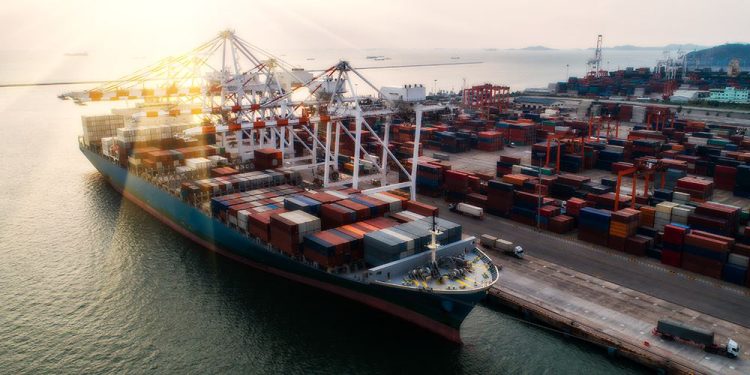- Watch The JD Rucker Show every day to be truly informed.
(Natural News)—Over the weekend, four of the world’s largest shipping companies halted operations in the Red Sea amid ongoing vessel attacks by Yemen’s Iran-backed Houthis.
On Friday, shipping giants A.P. Møller – Mærsk A/S (Maersk) and Hapag-Lloyd stopped all container ship travel in the Red Sea. The following day, Italian-Swiss-based Mediterranean Shipping Company and French-based CMA CGM followed suit.
This means that four major shipping companies are now no longer doing business in the Red Sea, which plays a critical role in the global economy. The Red Sea’s connection to the Mediterranean Sea and the way it allows for easy vessel travel between Asia and Europe makes it one of the most heavily traveled waterways in the world.
Problems began when Iran-backed Houthis in Yemen started firing missiles and drone attacks at commercial vessels in the Red Sea in retaliation against Israel for its Gaza operation, as well as against the United States and other Western countries that back Israel.
There have now been four separate missile and drone attacks near the strategic Bab al-Mandab strait, which separates Yemen and Djibouti at the south end of the Red Sea next to the Gulf of Aden.
(Related: The world’s second-largest electronic components manufacturer has announced a 20-week delay for “engineered-to-order” [ETO] components in yet another global supply chain disruption.)
10 percent of global trade disrupted by Red Sea conflict
Roughly 10 percent of the world’s international trade occurs in the Red Sea. Each year, some $2.4 trillion worth of trade passes through its waters, which makes these vessel cancellations a major news item in terms of the global economy.
“We are deeply concerned about the highly escalated security situation in the southern Red Sea and Gulf of Aden,” reads a statement from Maersk. “The recent attacks on commercial vessels in the area are alarming and pose a significant threat to the safety and security of seafarers.”
Nils Haupt, a spokesman for Hapag-Lloyd, issued a statement of his own indicating that container ships are currently drifting outside the straight as they await further instructions. Some shipping companies have already completely rerouted their vessels around the Cape of Good Hope to avoid the conflict area.
Also over the weekend, U.S. Central Command tweeted on X (formerly Twitter) that the Burke-class guided-missile destroyer USS CARNEY shot down 14 Houthi drones in the Red Sea.
The Cape of Good Hope, by the way, is located at the very southern tip of South Africa. To reroute there instead of going through the Red Sea adds thousands of miles of extra travel for commercial vessels, which now have a lot further to go before reaching their destination.
Credit Suisse strategist Zoltan Pozsar warned earlier this year that the collapsing old world order would create conflict in international waters that will require intervention by militaries around the world. De-globalization seems to be the name of the game as nations of the world move back towards nationalism.
“I suspect the Iranians have armed the Houthis with some serious anti-ship missiles and there is a fear of embarrassment if a Navy ship is sunk,” one commenter wrote on a story about the Red Sea crisis. “The gayest Navy in the world.”
“The U.S. is itching to go at Iran,” suggested another. “No doubt the false flag will come soon enough, just as soon as Israel has mopped up the Gaza Strip. But ‘wars’ are not about winning; they are about killing our young and making the rich richer.”
Another noted that a lot of the commercial vessel traffic that goes through the Red Sea is bound for Europe, which is likely to see more supply chain problems emerge out of this.
Sources for this article include:
Controlling Protein Is One of the Globalists’ Primary Goals
Between the globalists, corporate interests, and our own government, the food supply is being targeted from multiple angles. It isn’t just silly regulations and misguided subsidies driving natural foods away. Bird flu, sabotaged food processing plants, mysterious deaths of entire cattle herds, arson attacks, and an incessant push to make climate change the primary consideration for all things are combining for a perfect storm to exacerbate the ongoing food crisis.
The primary target is protein. Specifically, they’re going after beef as the environmental boogeyman. They want us eating vegetable-based proteins, lab-grown meat, or even bugs instead of anything that walked the pastures of America. This is why we launched a long-term storage prepper beef company that provides high-quality food that’s shelf-stable for up to 25-years.
At Prepper All-Naturals, we believe Americans should be eating real food today and into the future regardless of what the powers-that-be demand of us. We will never use lab-grown beef. We will never allow our cattle to be injected with mRNA vaccines. We will never bow to the draconian diktats of the climate change cult.
Visit Prepper All-Naturals and use promo code “veterans25” to get 25% off plus free shipping on Ribeye, NY Strip, Tenderloin, and other high-quality cuts of beef. It’s cooked sous vide, then freeze dried and packaged with no other ingredients, just beef. Stock up for the long haul today.








